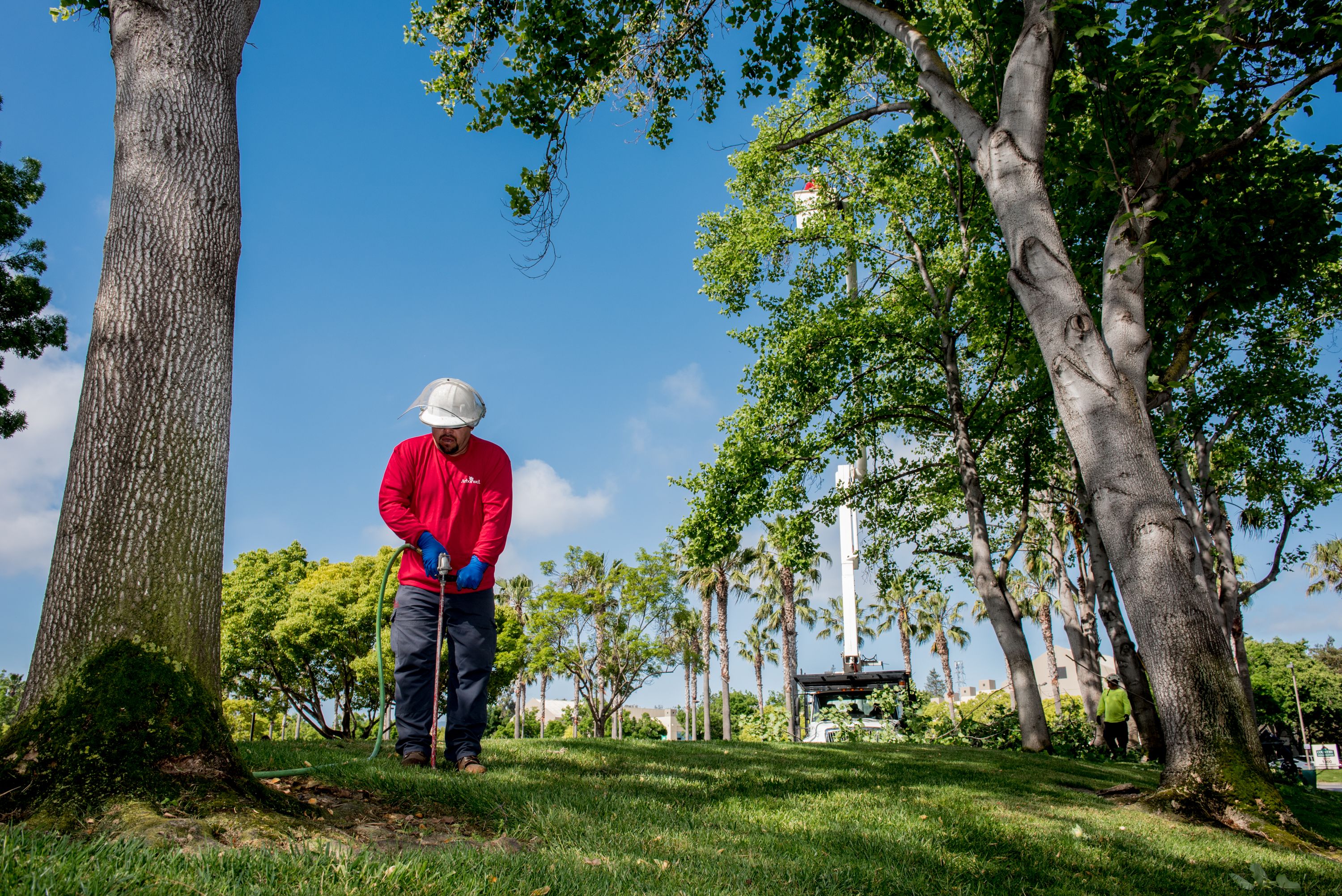
Arbor-wellness: Soil Nutrition
What’s wrong with my soil?
Poor quality soil has a major impact on the health of your trees. When soil is healthy, has the proper mineral balance and thriving microorganisms, trees naturally grow better, withstand stresses better and tend to fail less frequently. Poor soil conditions are often the underlying cause of tree decline and failures. It could be from compaction, poor soil water holding ability, excesses of salt or other minerals, or deficiencies of key micro-nutrients.
How can you tell if there’s something wrong with your soil?
Unhealthy plants are the most obvious indicator; however, there are ways to assess and determine more precisely what is wrong and – more importantly – how to fix those problems.
Just what is soil anyway?
It much more than just dirt that tracks into our houses, gets muddy when wet and blows around when dry and windy. The simple explanation is that soil consists of air, minerals and water. The balance of how much of those elements are in your soil go a long way to determining the actual health of the soil. However, soil is much more than just this.
Soil is an incredibly complex ecosystem that we usually think very little about. It’s role in tree health has been studied for a long time, yet we are still learning so much about how soil organisms interact with one another, with plants and with the soil itself. Because soil is so complex and in reality, very dynamic – what we do to soil affects very much the quality of the soil and its ability to help plants thrive. Because the very nature of being in an urban environment, natural soil conditions no longer exist around our buildings, in our parking lots and even in our parks. So how do we fix it?
“Essentially, all life depends upon the soil”– Charles E. Kellogg
To figure out what is wrong with your soil, you first need to understand what healthy soil actually is.
- First soil minerals should be properly balanced. The main components that make soil have an ideal balance. We determine this from a basic soil test.
- Second, we identify micronutrient excesses and deficiencies. These are the components that are critical to proper tree growth, but usually needed in small amounts.
- Third we need to ensure that soil biology thrives. This becomes trickier because while these microscopic creatures are native to all soils, they need very specific conditions to truly thrive. These conditions include: proper soil moisture and temperature, enough air, a balance of minerals in the proper ratios and in particular, enough carbon in the soil. This can come in different forms and often the type of carbon is very critical as well. The good news is we can determine just what the potential of soil life is when we to a soil health assessment. This more complete analysis identifies the potential for your soil to thrive and indicates the obstacles to preventing that.
- Lastly, we should pay attention to toxins, water management and mulch.
When we do a soil health assessment, we are looking at all of these factors to determine the best course of action to improve the soil for your trees. That is why our recommendations often include more that just fertilizer components. We strive to identify the limiting factors to YOUR soil and help you take cost effective steps to help improve the quality of your soil. This leads to many benefits for your trees and your sites.
How does healthy soil help your local site?
Let’s end the discussion by identifying some of the benefits of improving the soil conditions on your site:
Healthy soil
- Is less prone to erosion
- Holds water longer
- Holds minerals so they don’t leach into the water table
- Meets the nutritional needs of your plants
- Healthier plants are more resistant to insects and diseases
- Healthy soil helps to filter toxins from the soil
- Healthy soil supports good soil biology and reduces soil diseases
- Creates a more sustainable environment for your property
To get in touch with one of our certified arborists, fill out the form below: